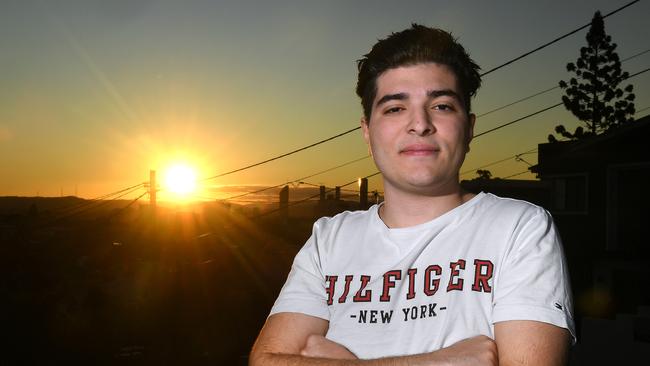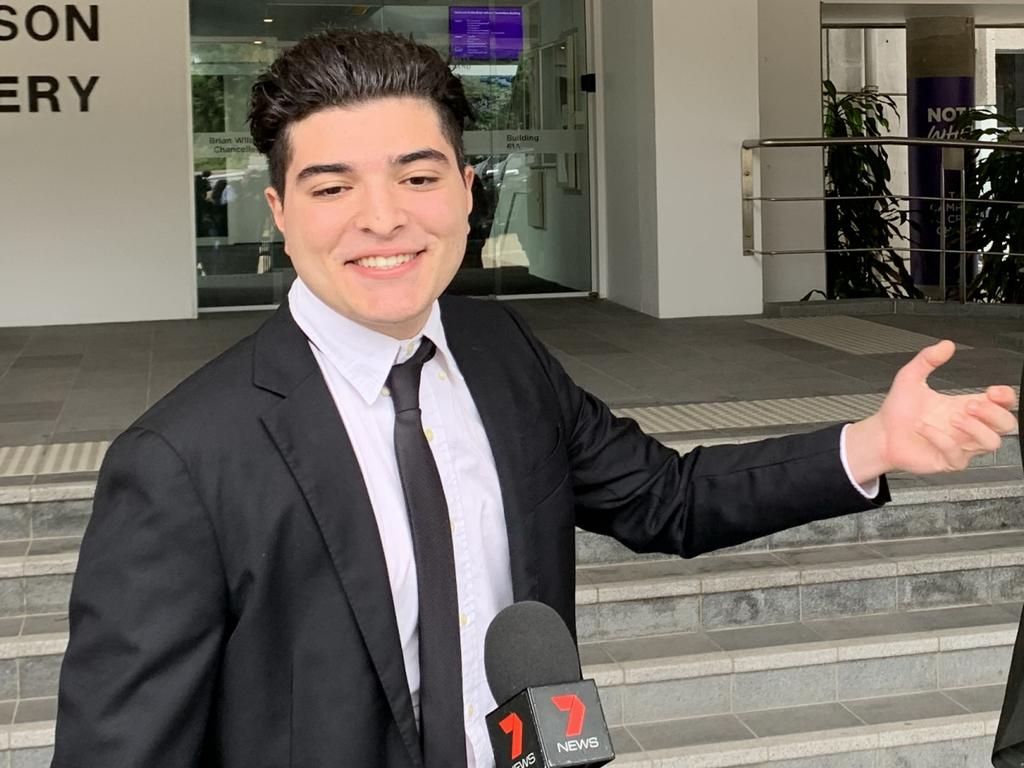Anti-China student activist Drew Pavlou blasts University of Queensland
Student activist Drew Pavlou has launched an attack on the University of Queensland.

Facing expulsion over his anti-Beijing stand, student activist Drew Pavlou has launched a blistering 11th-hour attack on the University of Queensland.
Through his barrister, Tony Morris QC, the philosophy major told the university’s disciplinary board he fully expected to be excluded when it ruled on his conduct as early as Friday.
The university went after Mr Pavlou, 20, over his orchestration of protests and social media posts critical of UQ’s ties with state institutions in China and the country’s human rights record. He was behind a pro-Hong Kong independence rally on the campus last July that ended in heated scuffles with supporters of the Chinese regime, some of whom allegedly assaulted the young man.
He walked out of a disciplinary hearing last week, calling the proceedings a “kangaroo court”.
In a May 26 letter to the board, Mr Morris said he had been instructed that his client had no desire to take up an opportunity to make written submissions to the board on the question of penalties.
“Mr Pavlou embarked on this process with every expectation that he will be excluded, and nothing has occurred to change that expectation,” the silk wrote.
A key issue of contention is a series of internal emails and draft emails from UQ offices in the hours after the pro-Hong Kong demonstration turned ugly last July 24. One of them, headed “student protests — a message to the Chinese Consulate”, was marked to be sent “for review” to the mission.
Mr Pavlou has separately taken to court the Chinese consul-general in Queensland, Xu Jie, saying his condemnation of the demonstration as “anti-China separatist activities” incited death threats against him.
The student had sought copies of the July 24 emails to aid his defence before the disciplinary board. They were eventually released, in redacted form, on the university website after he fronted the tribunal on May 20.
“The fact that these documents were released by the university, but only after the board’s hearing had concluded — and the fact that they were released on the internet to the world at large — is conclusive proof that there never was any legitimate reason for withholding the access sought by Mr Pavlou,” Mr Morris wrote.
“The only possible explanation is that the university wanted to keep them from Mr Pavlou only for so long as necessary to prevent his using them at the hearing.”
A spokesman for UQ said the university was unable to comment on confidential disciplinary matters, and referred to an earlier statement rejecting as ludicrous and unsubstantiated the claim it had co-ordinated the public response to the student protest with the Chinese consulate.
As Mr Pavlou had “every expectation” the action against him by the university would end up in court, he was “not minded to participate in a way which might add credibility to what, in his view, is an entirely flawed process,” his barrister wrote.







To join the conversation, please log in. Don't have an account? Register
Join the conversation, you are commenting as Logout